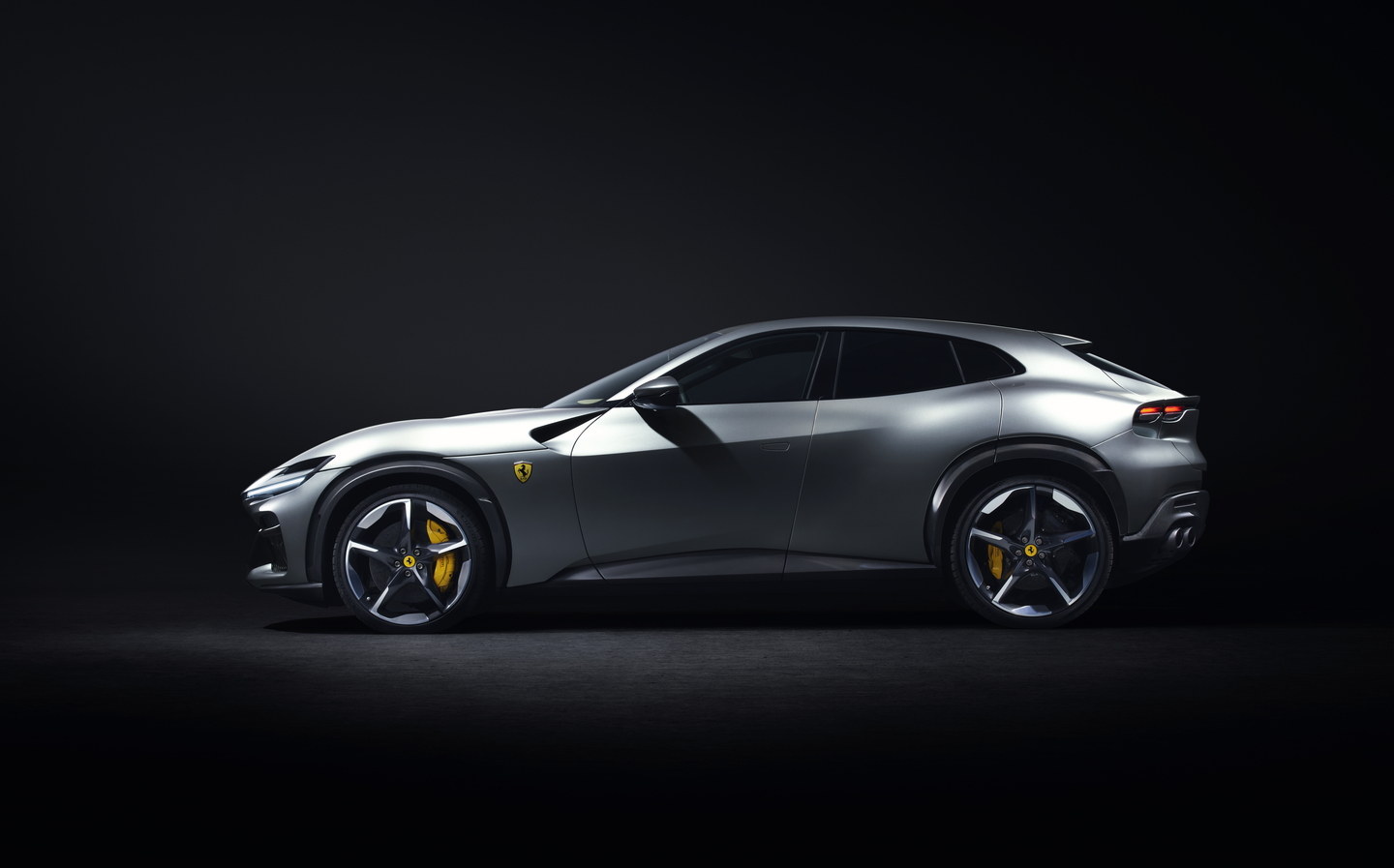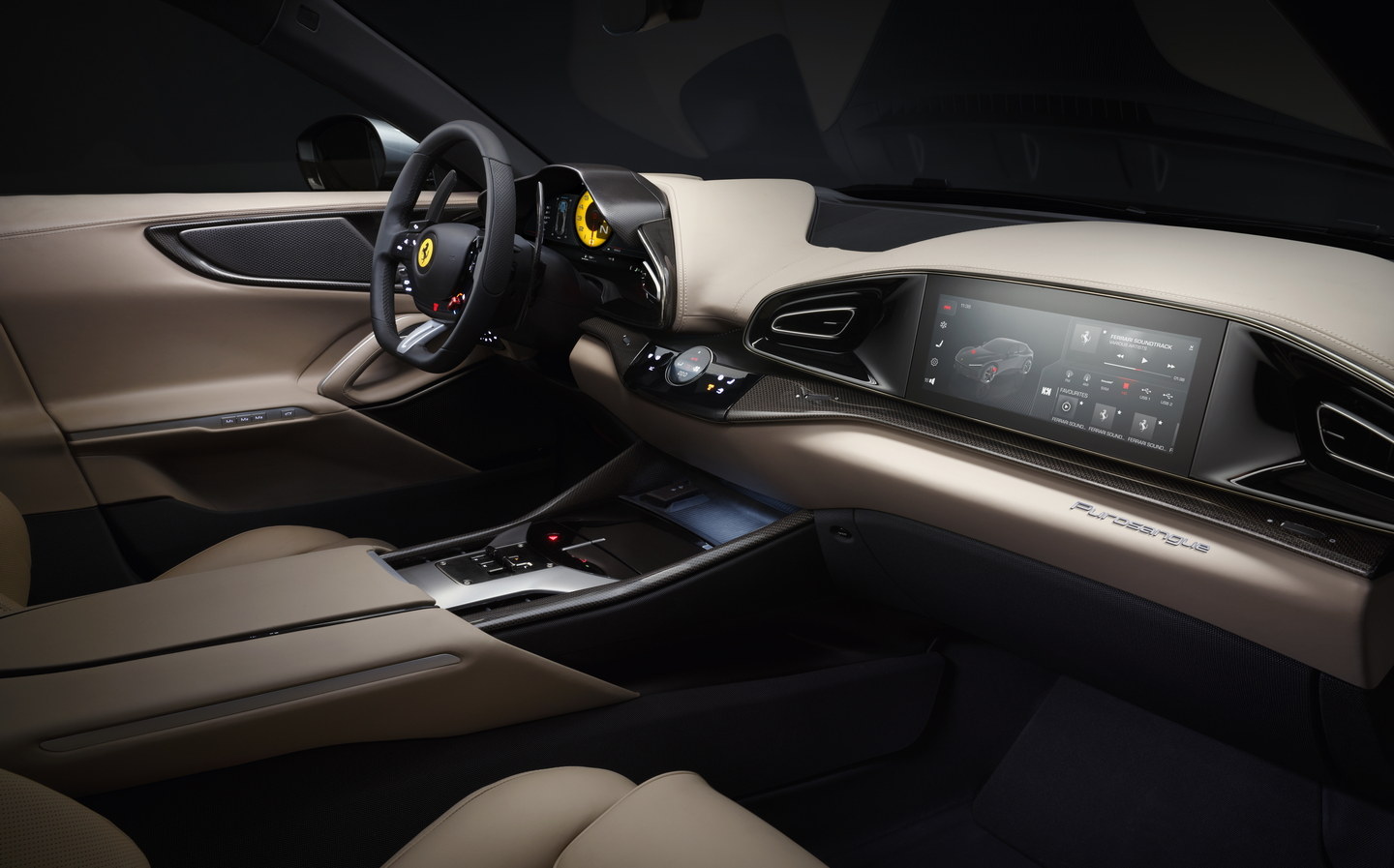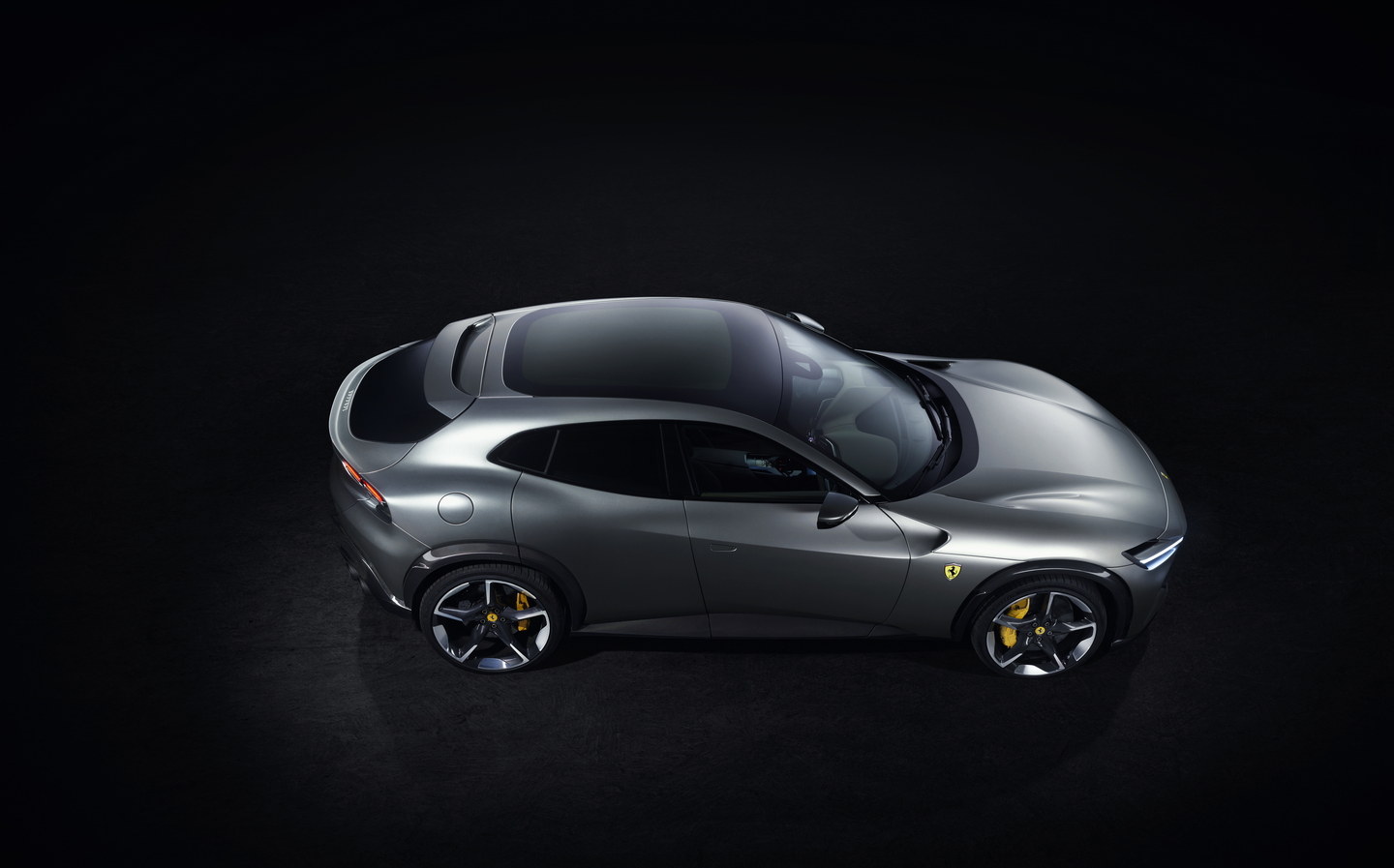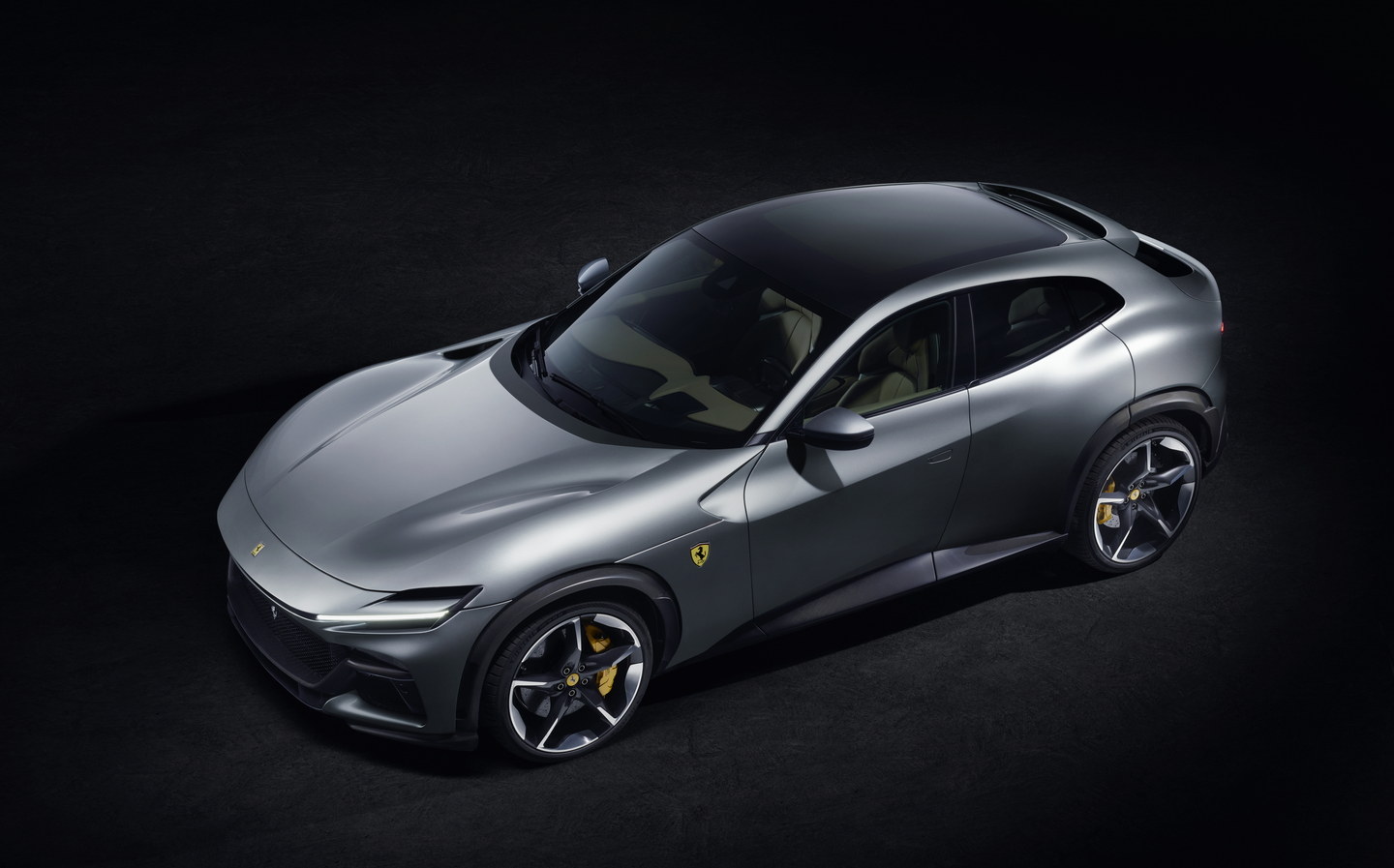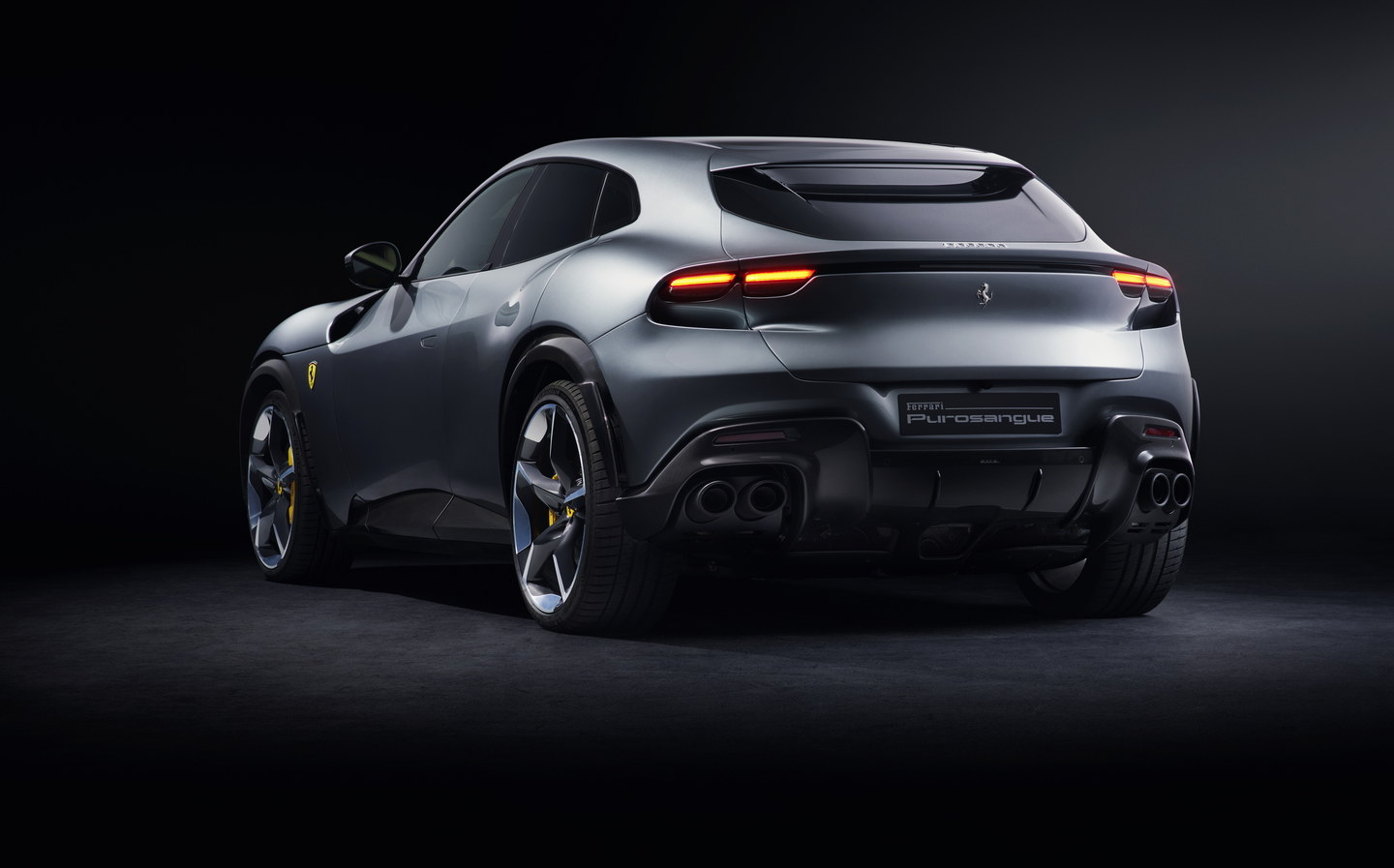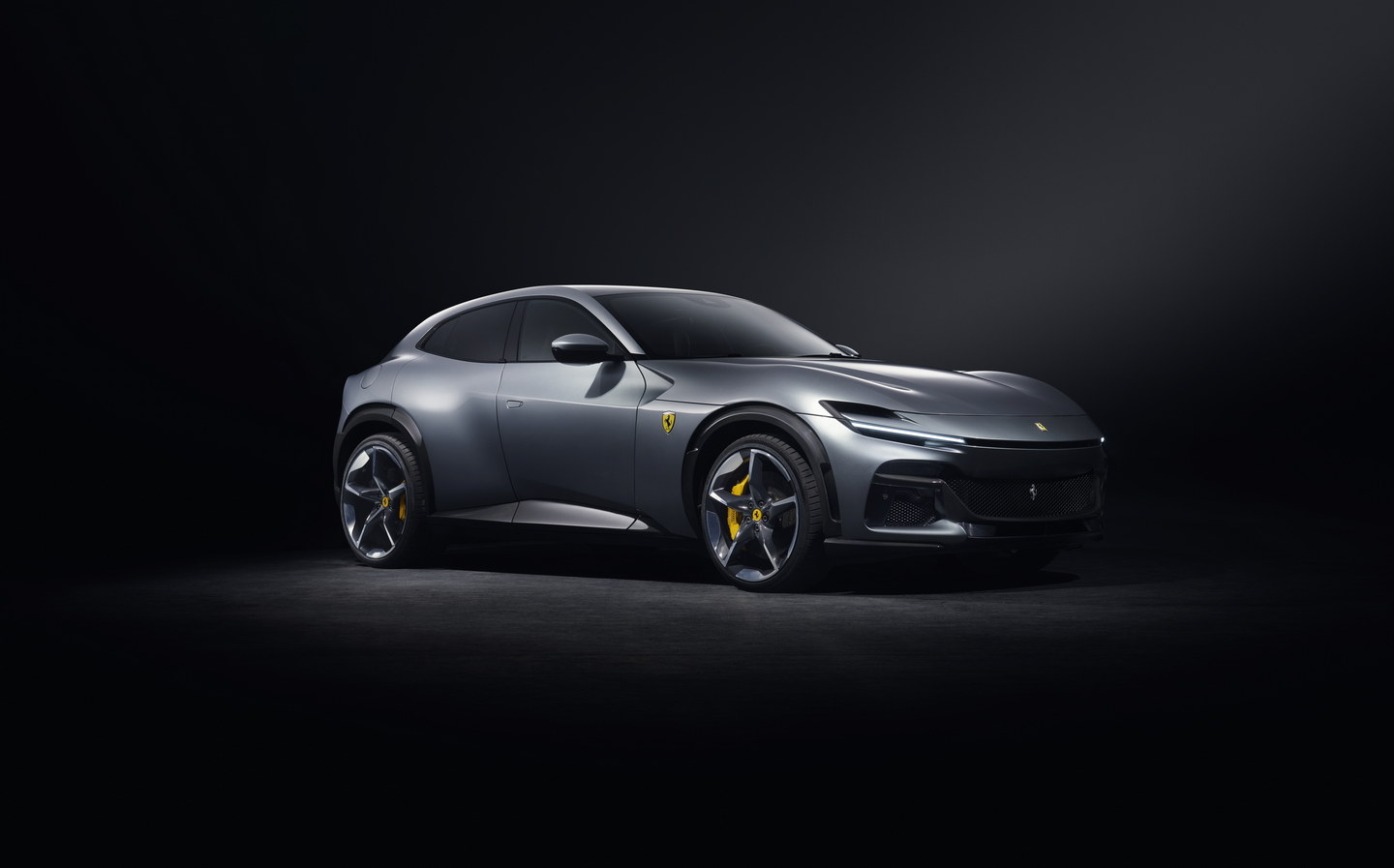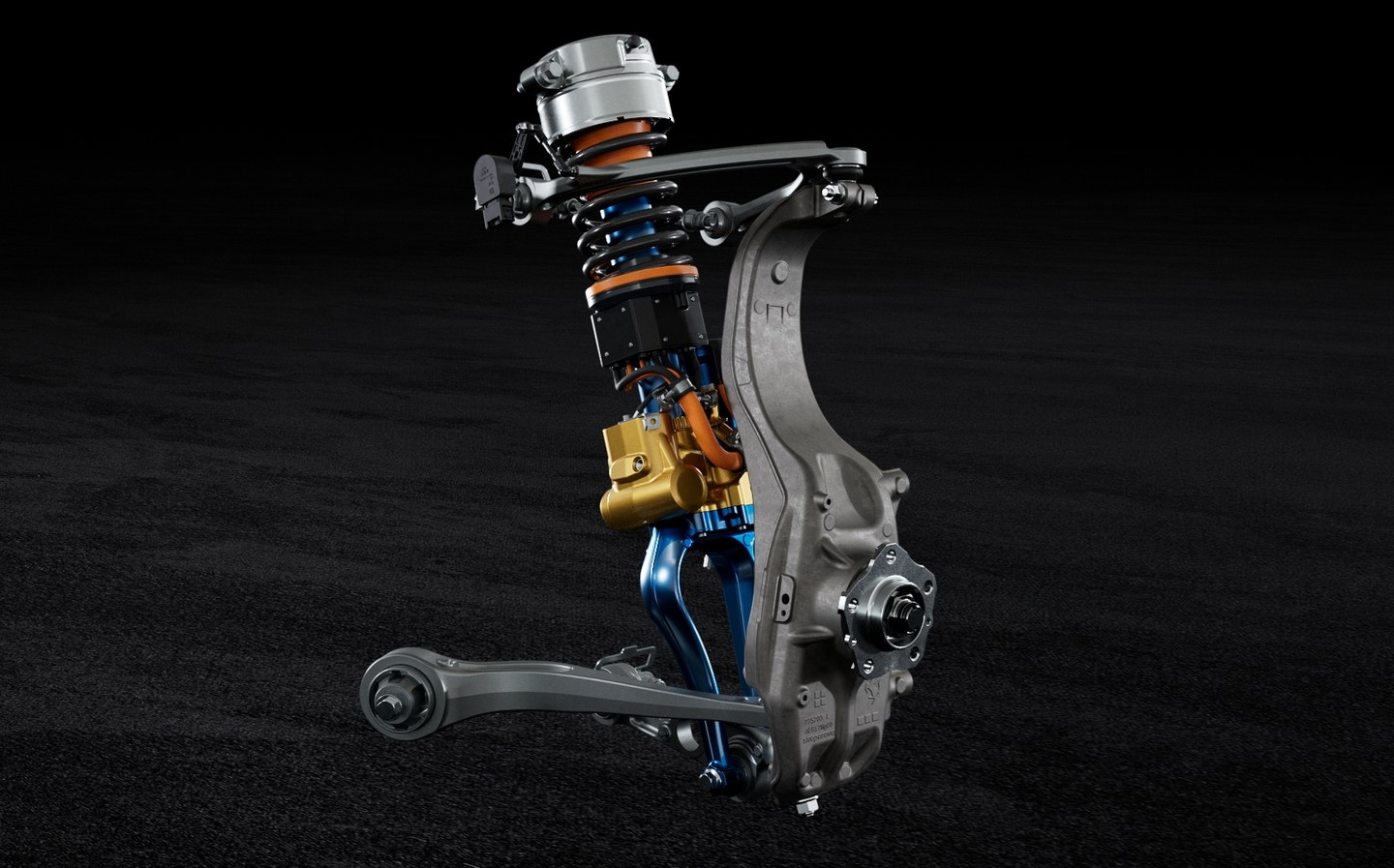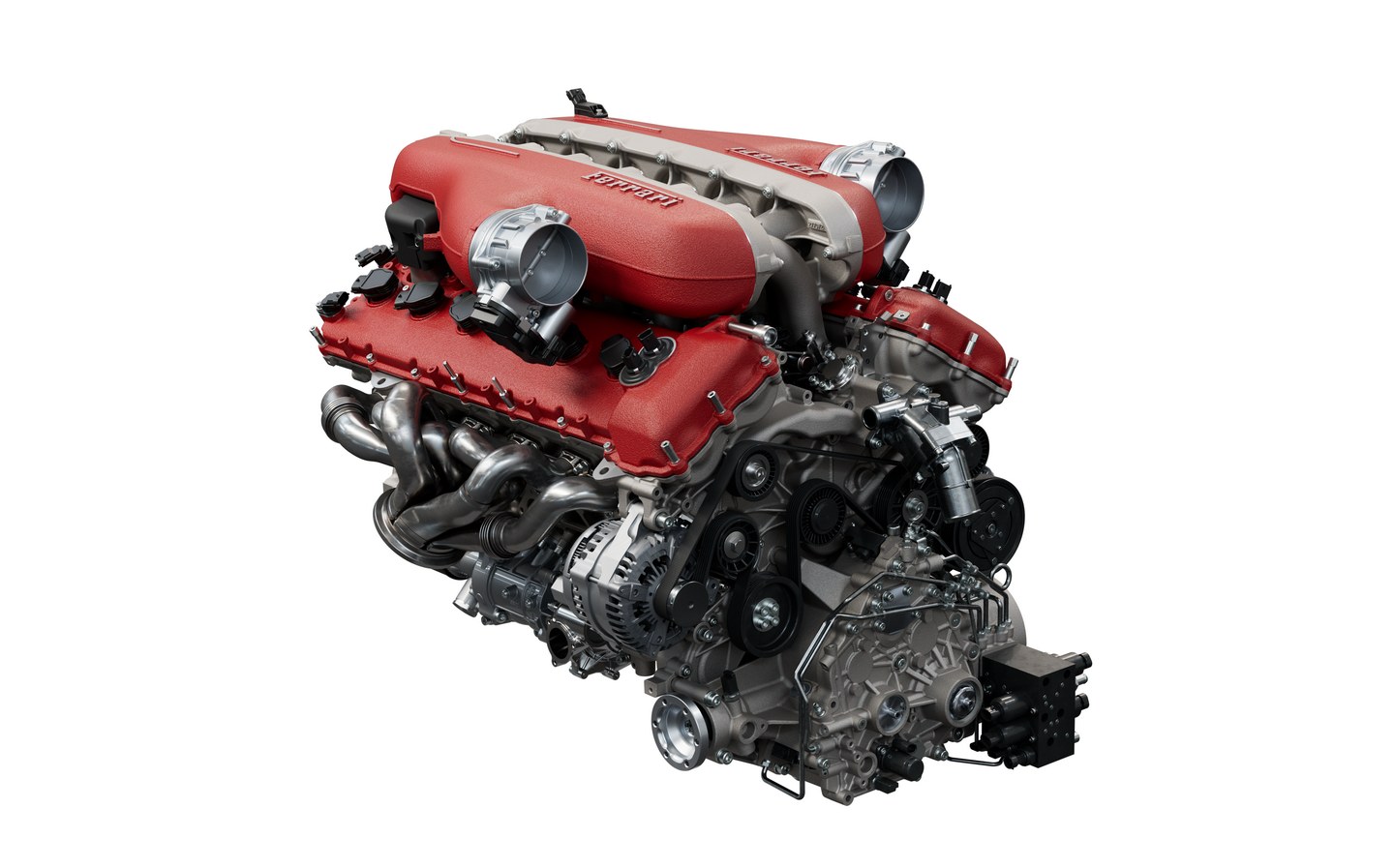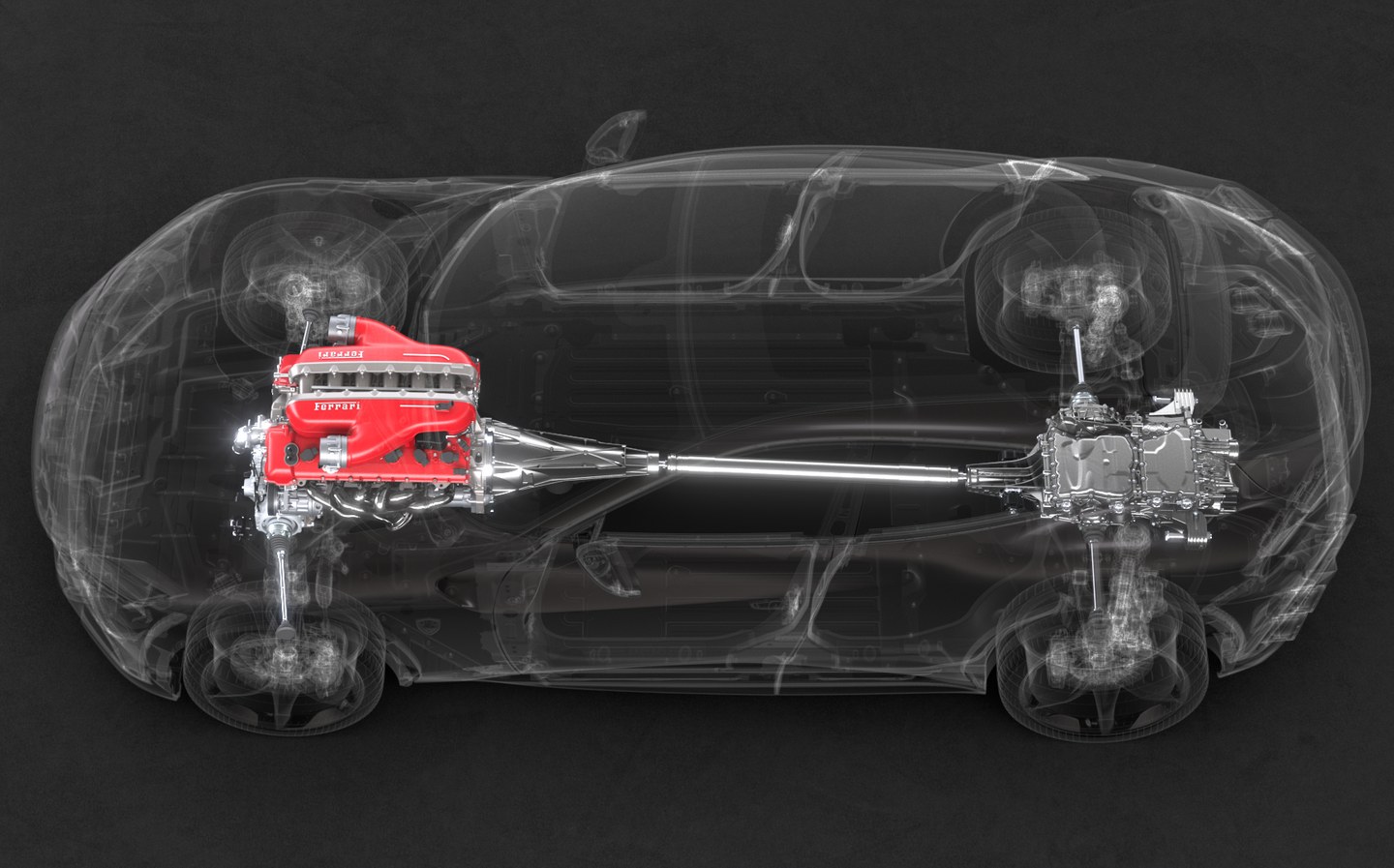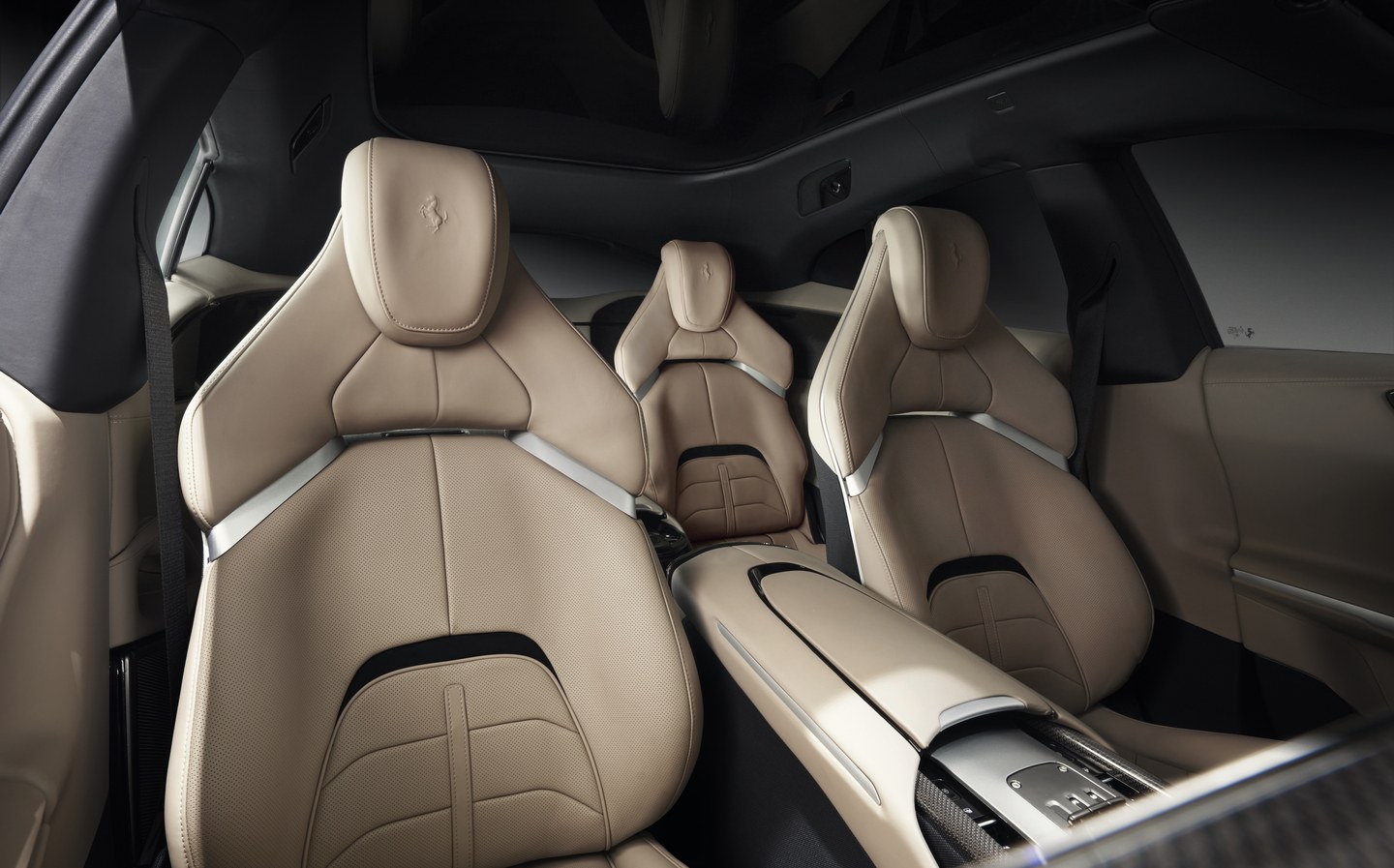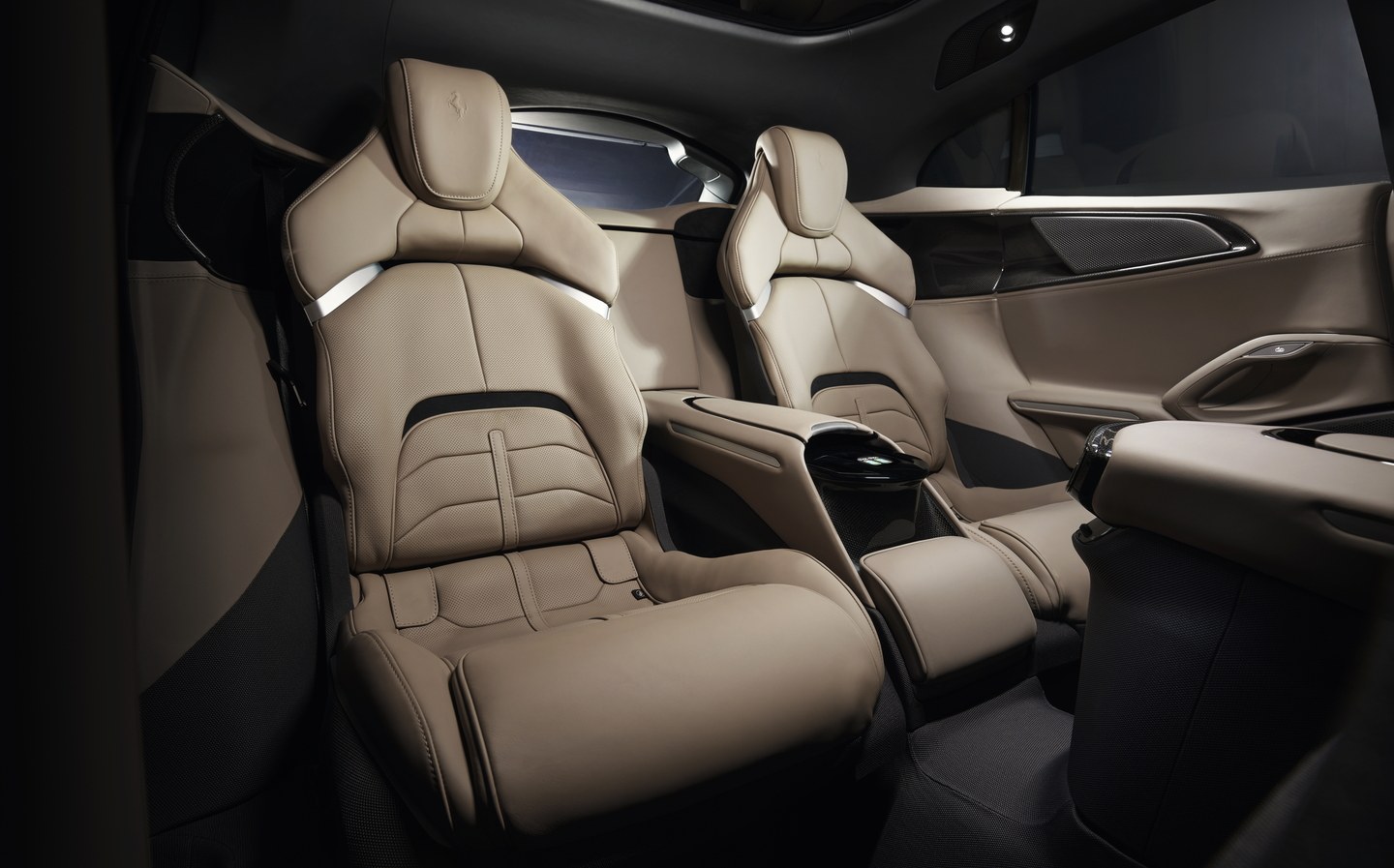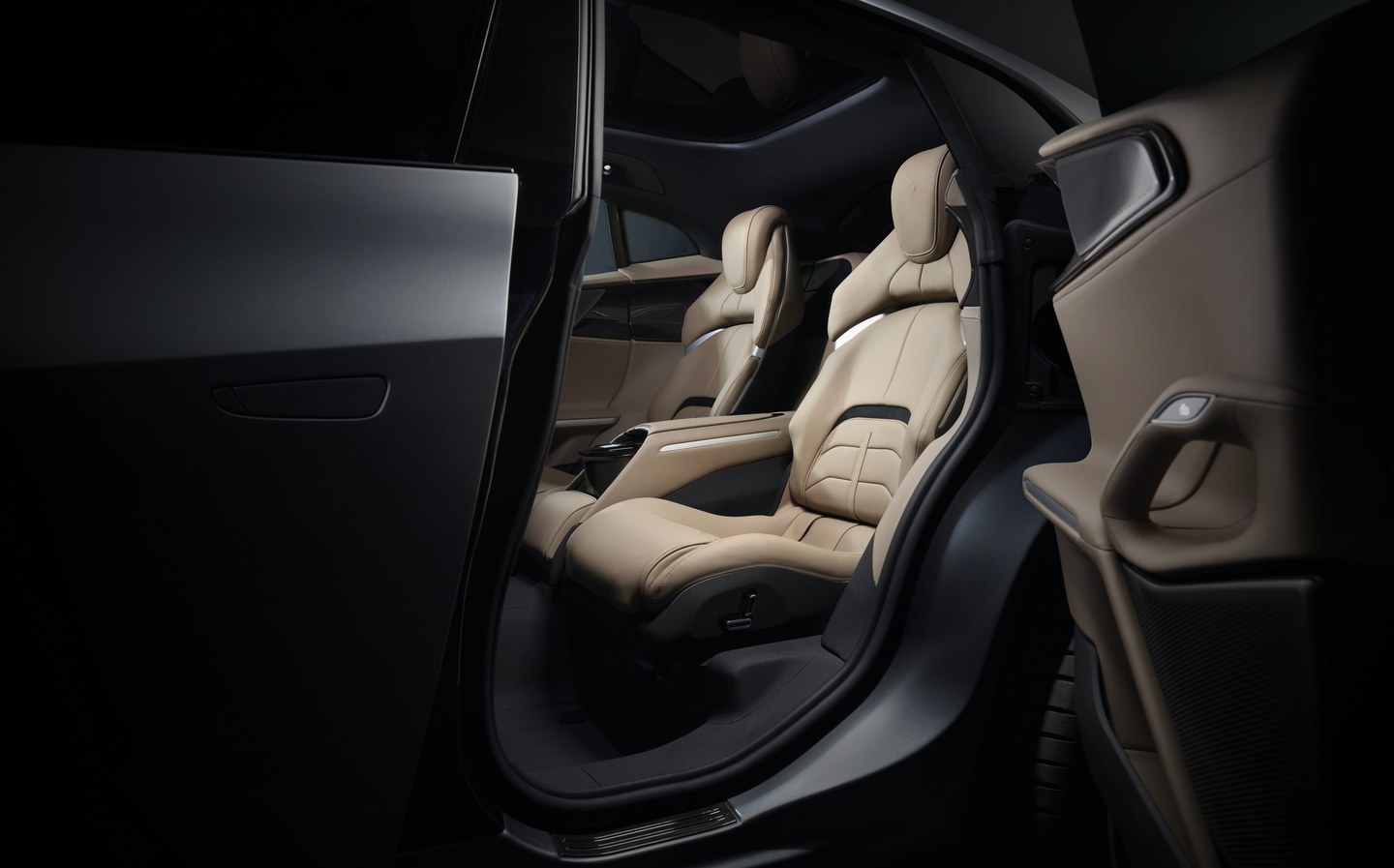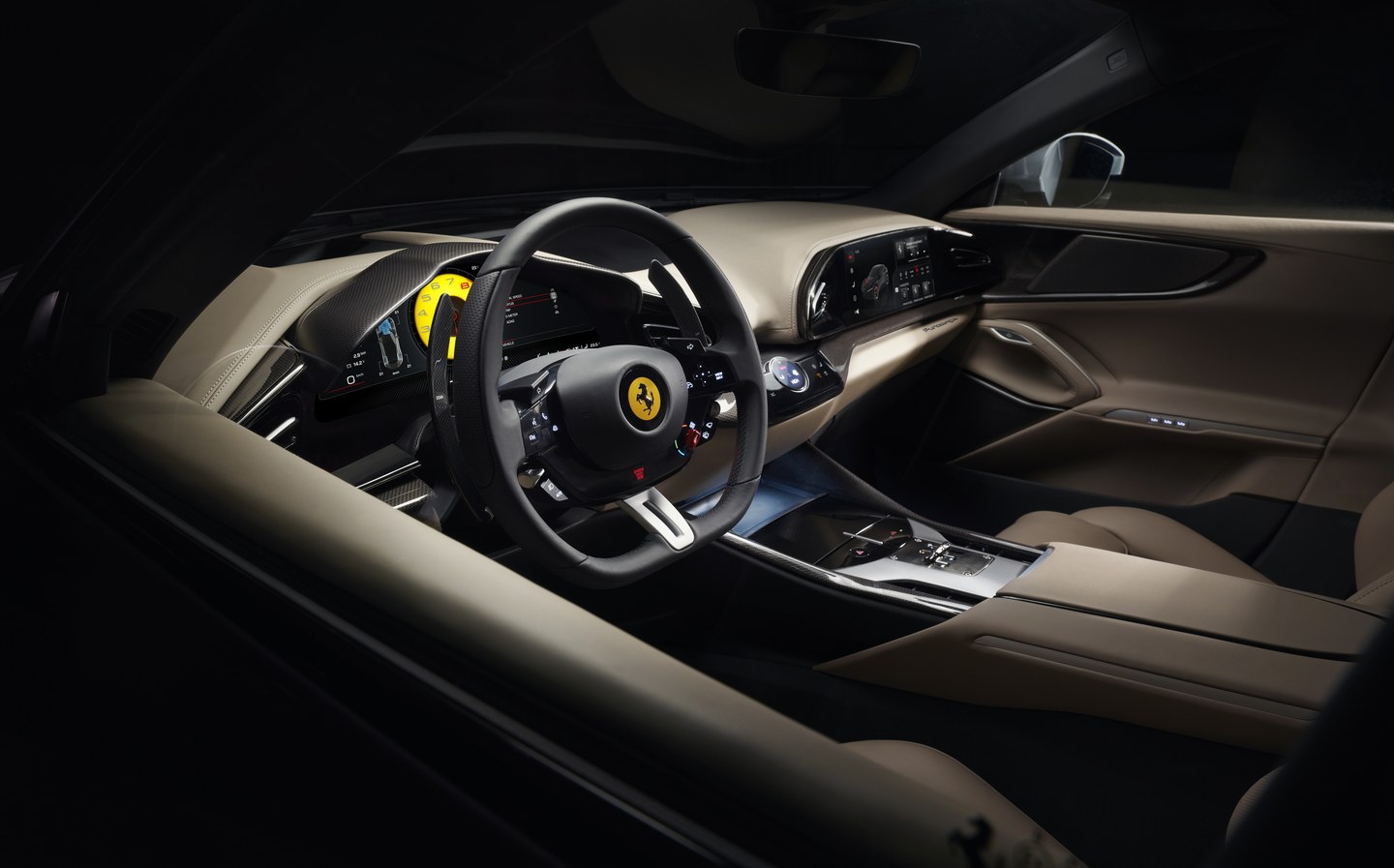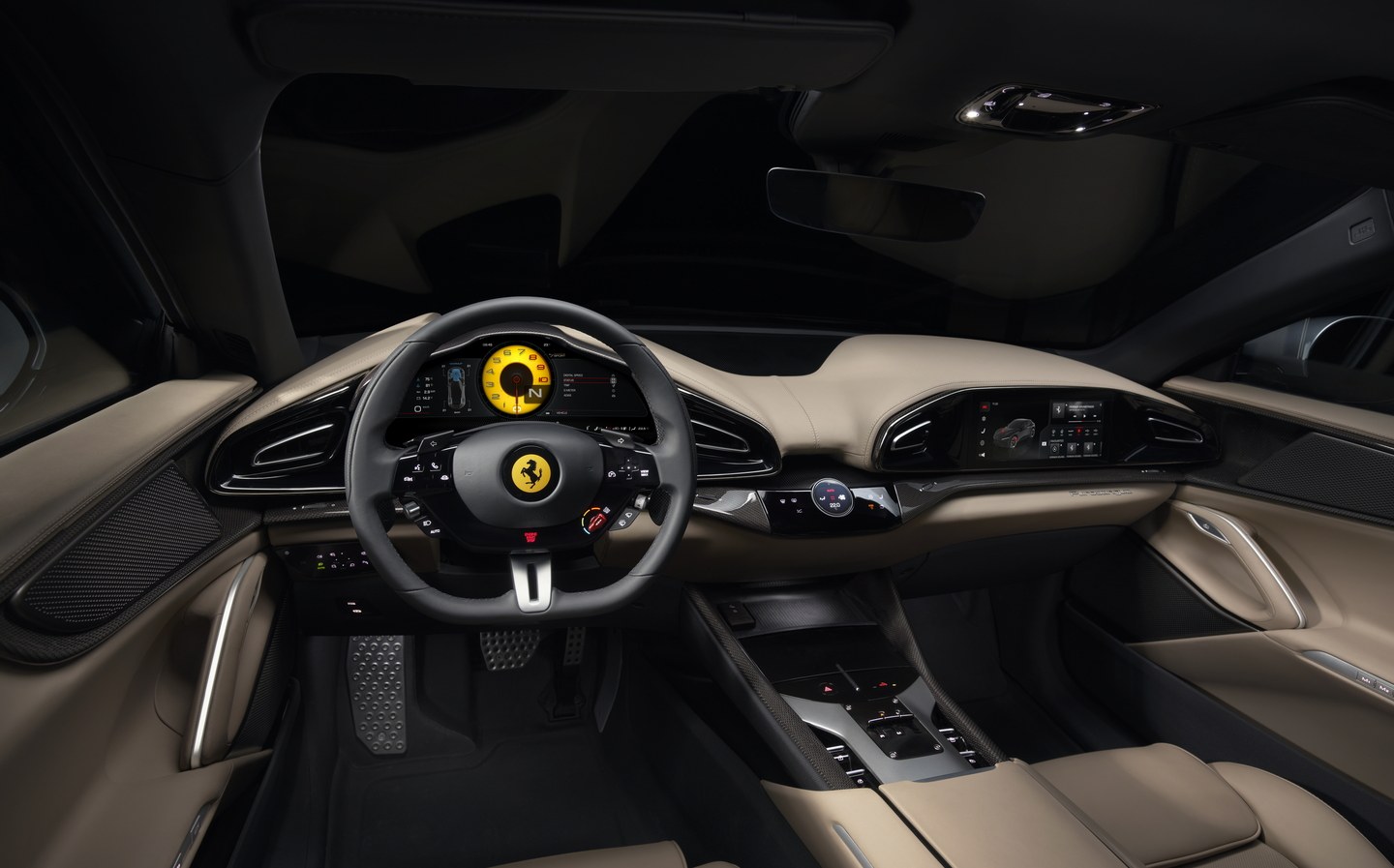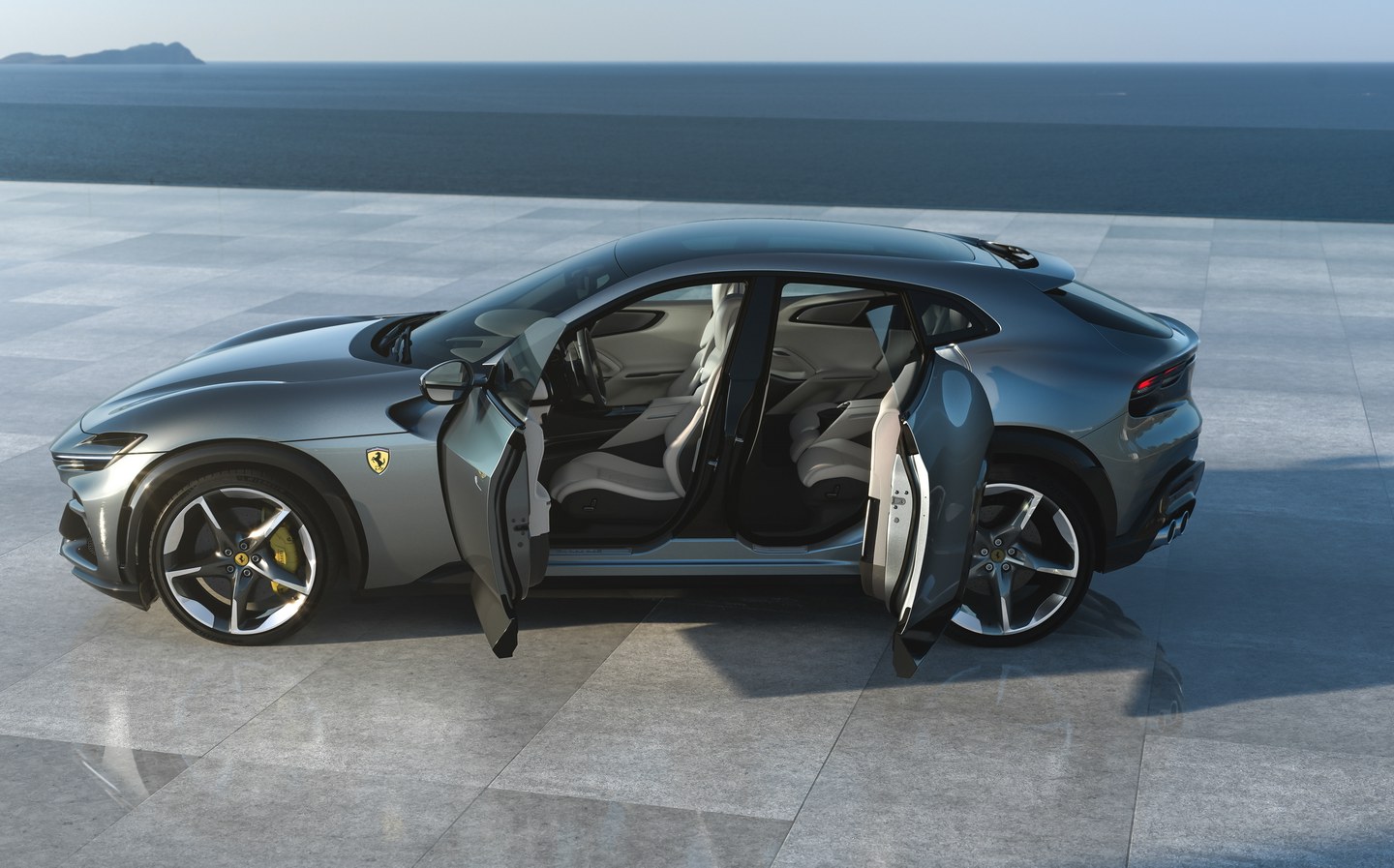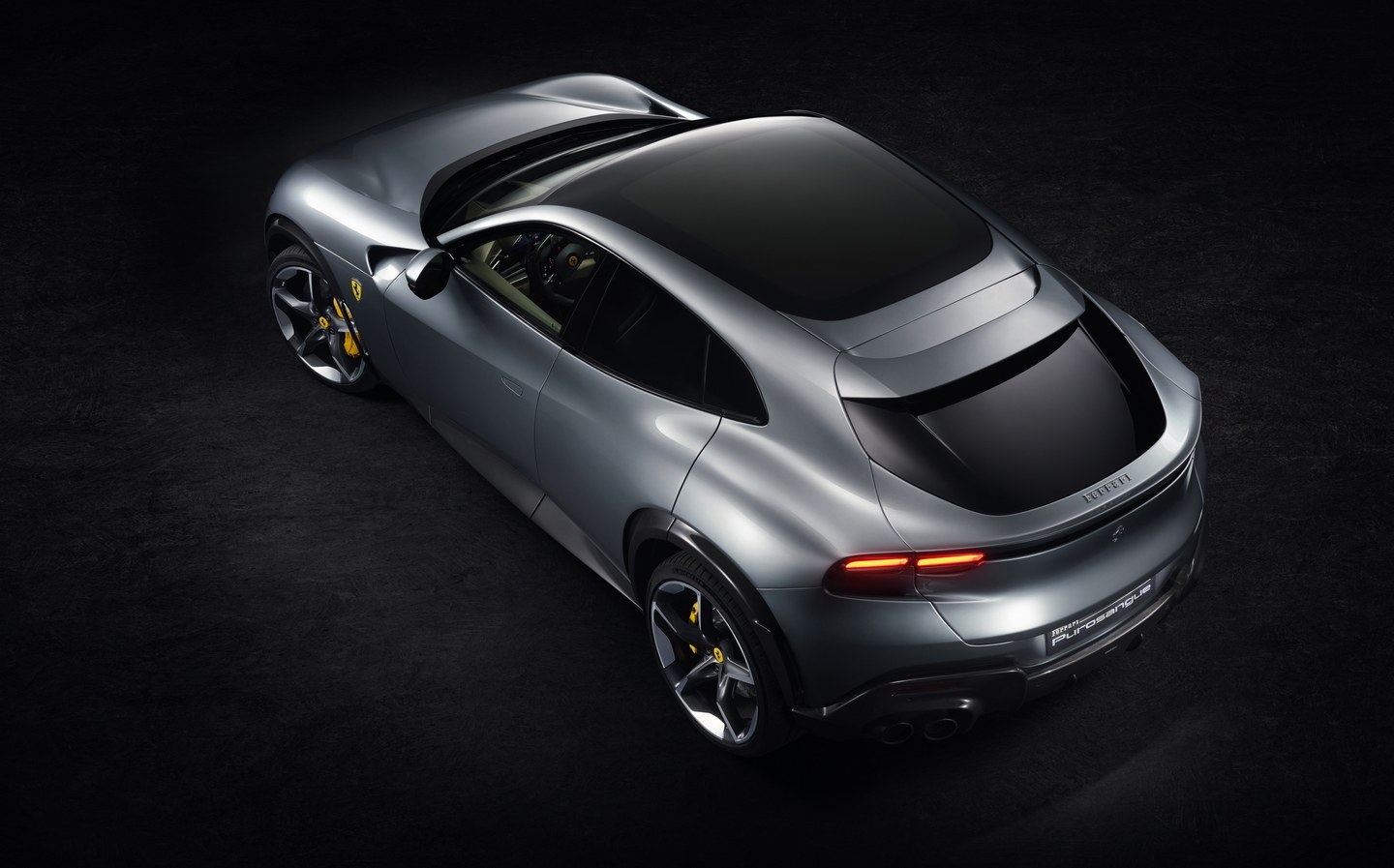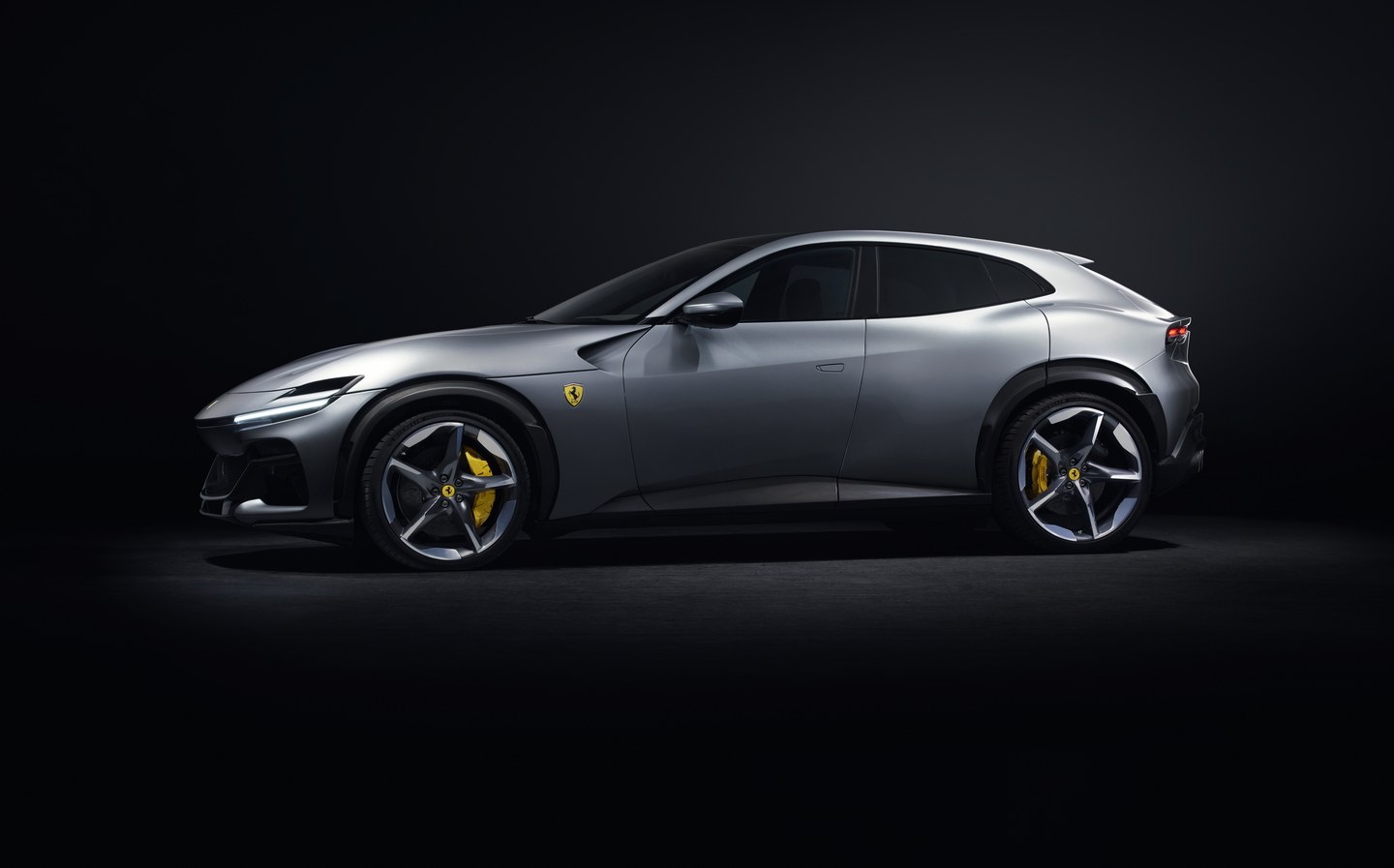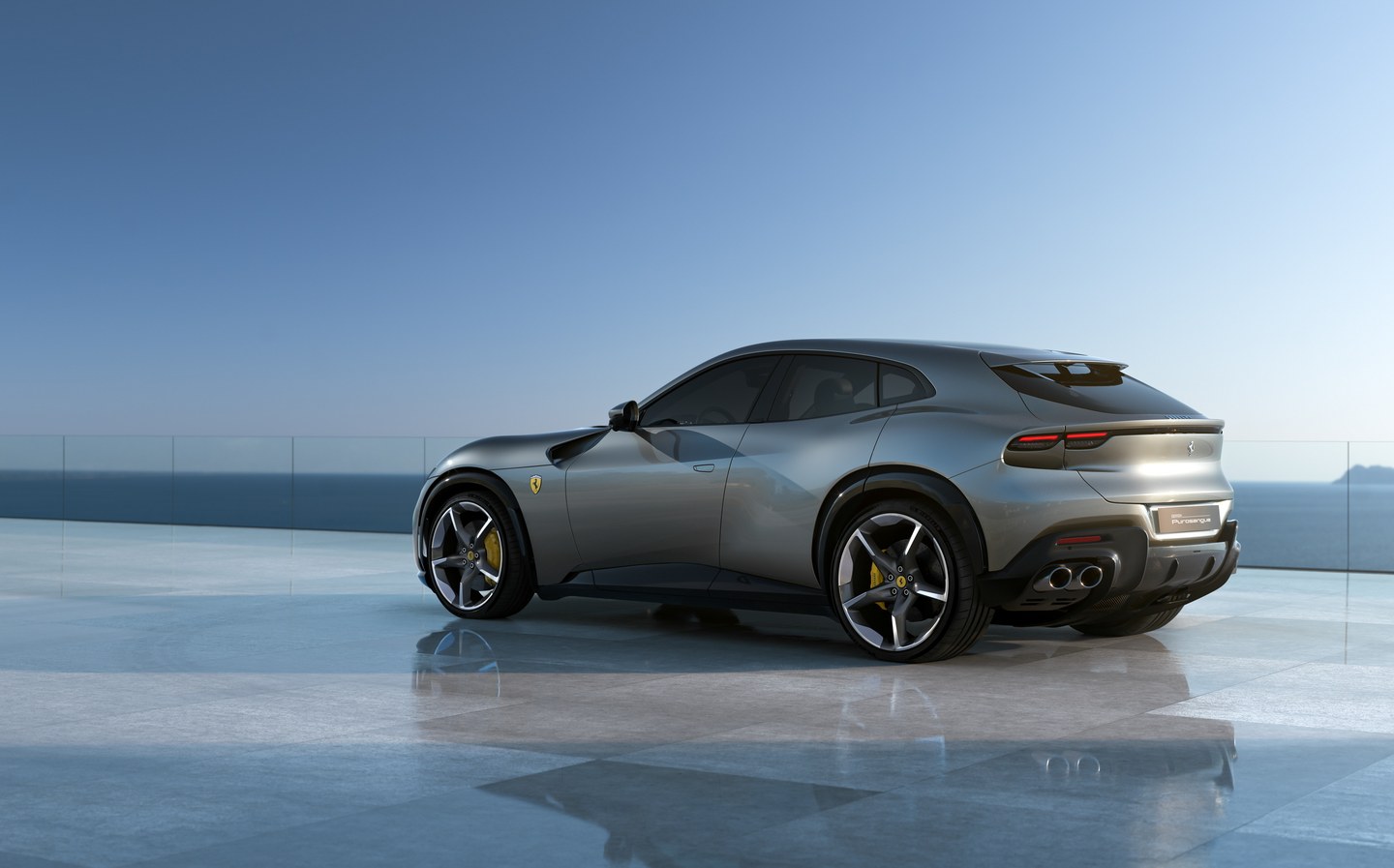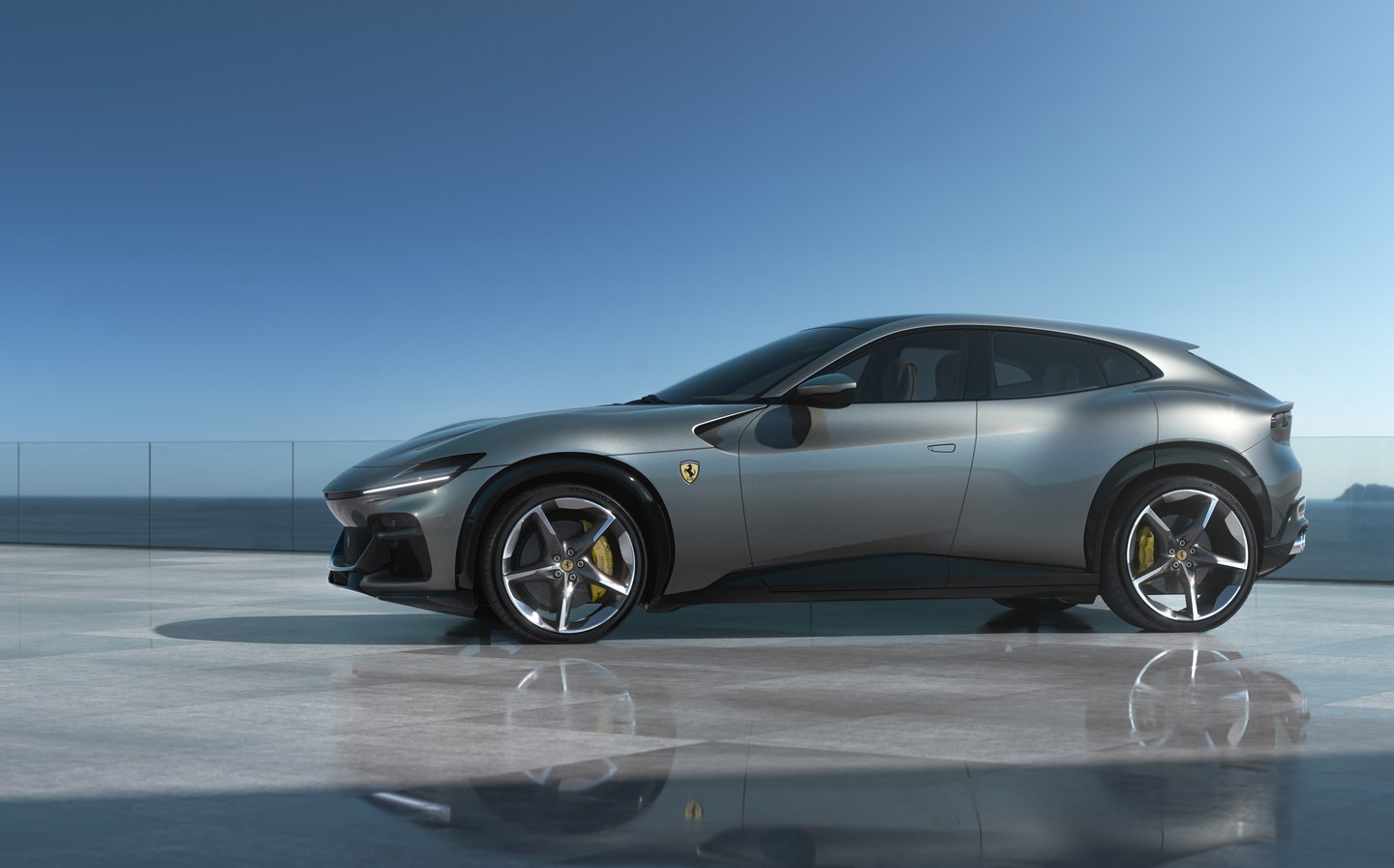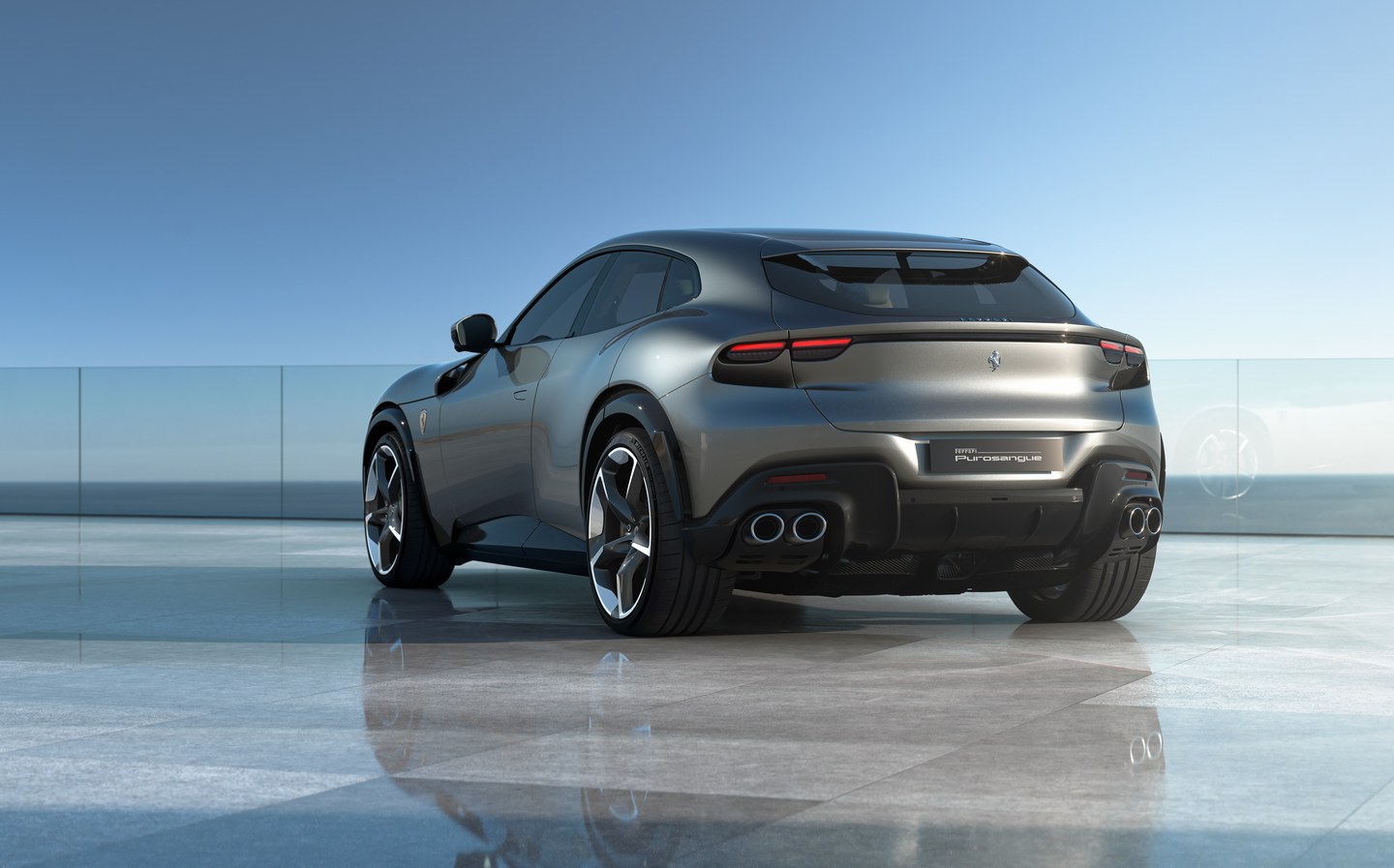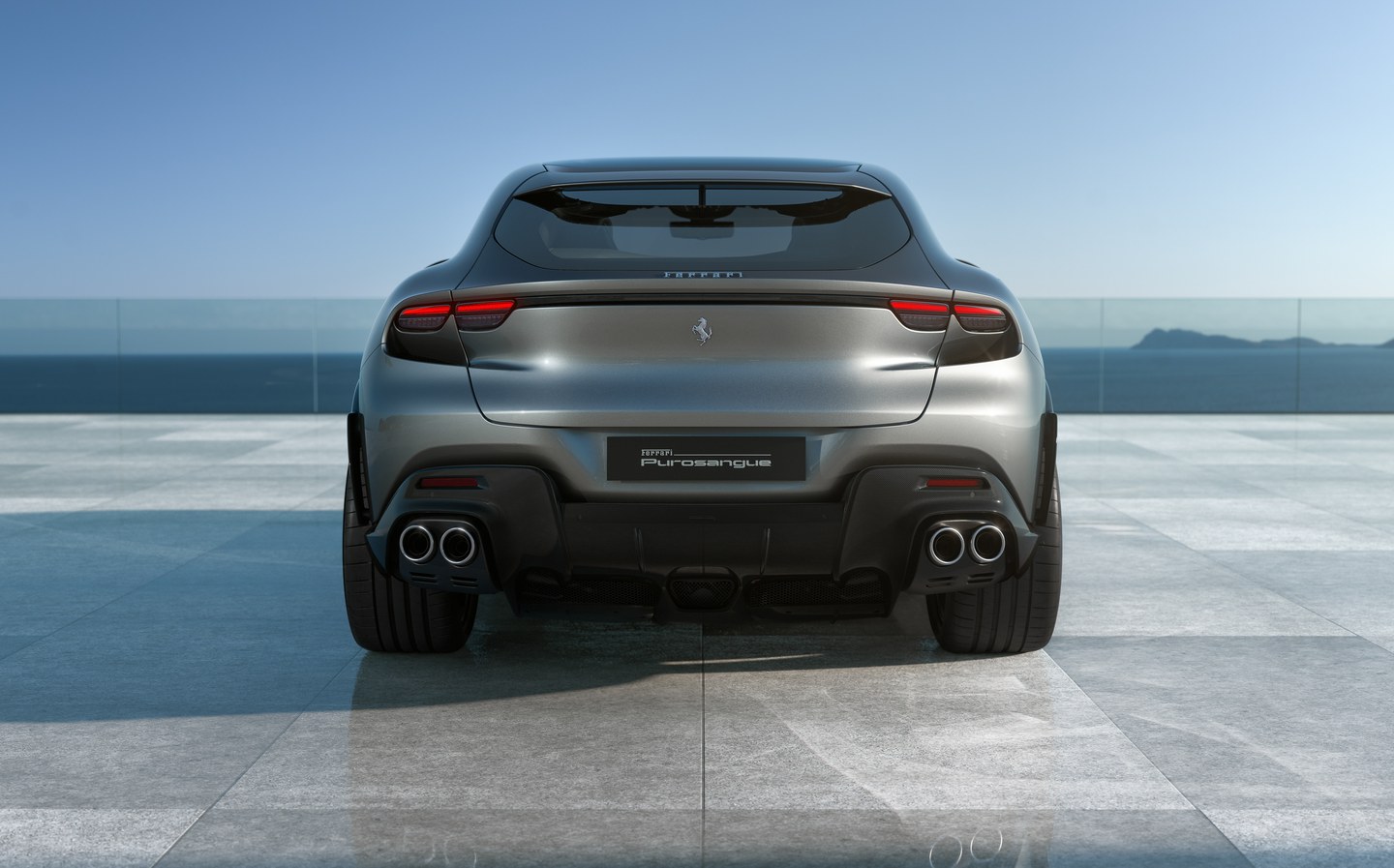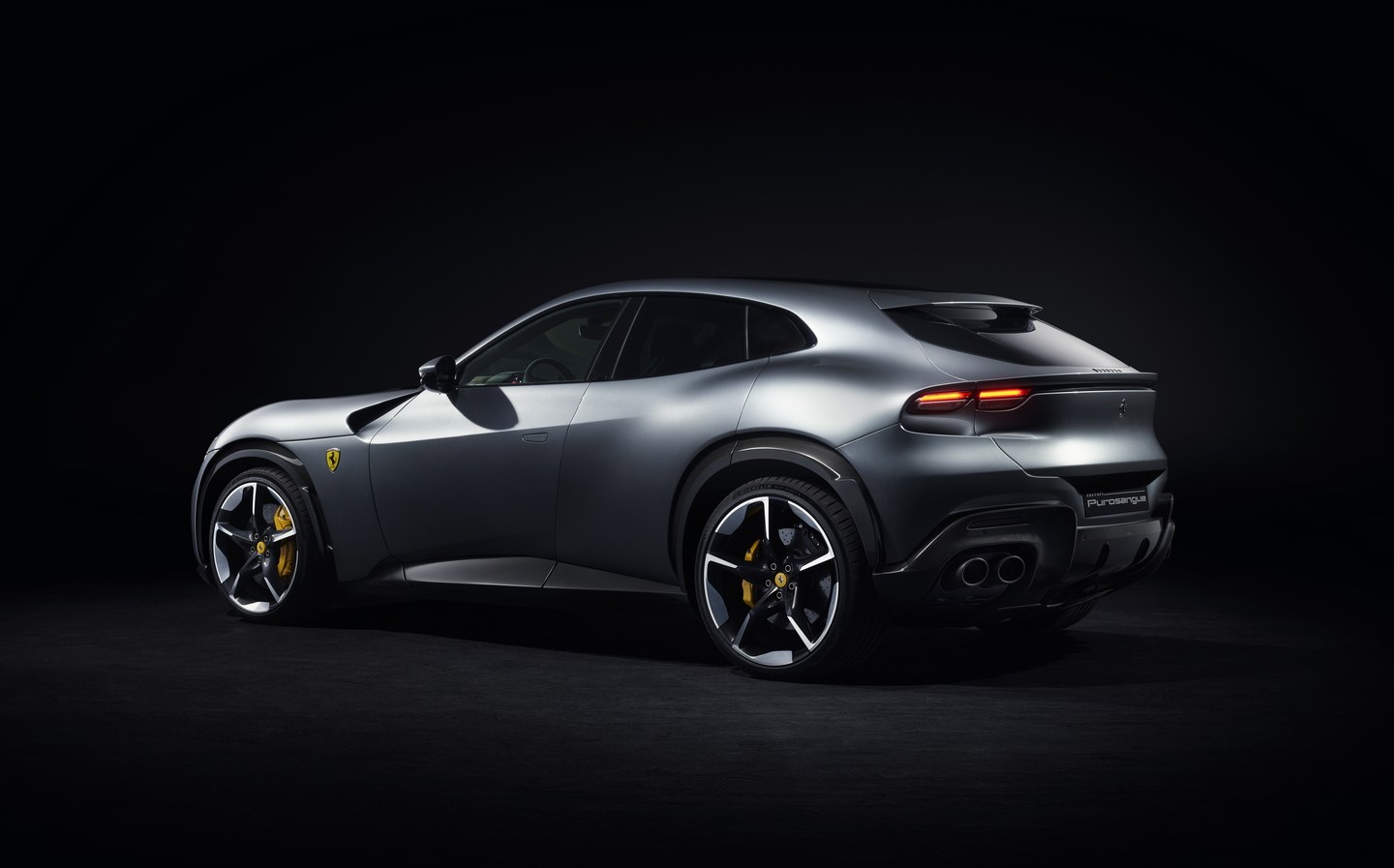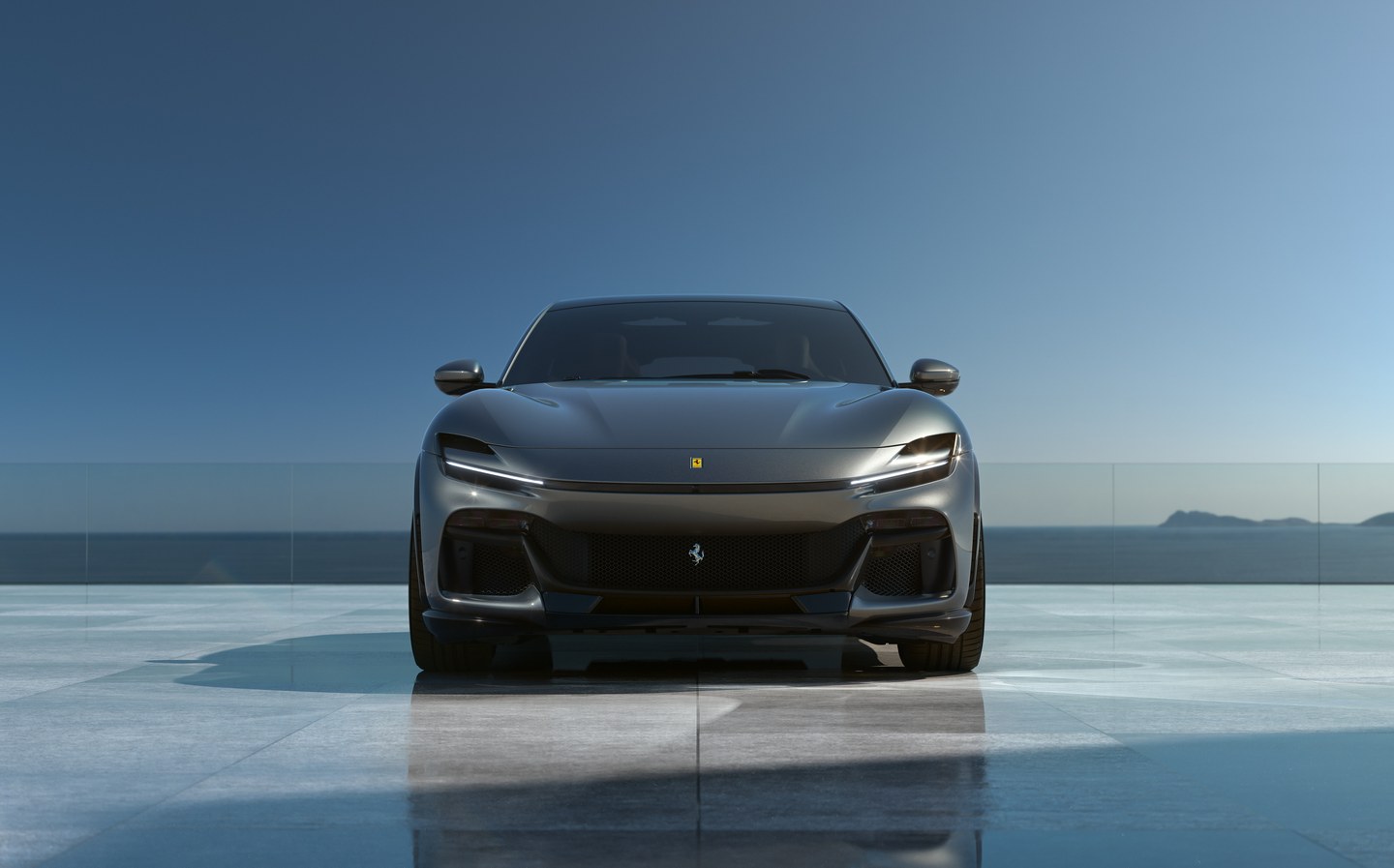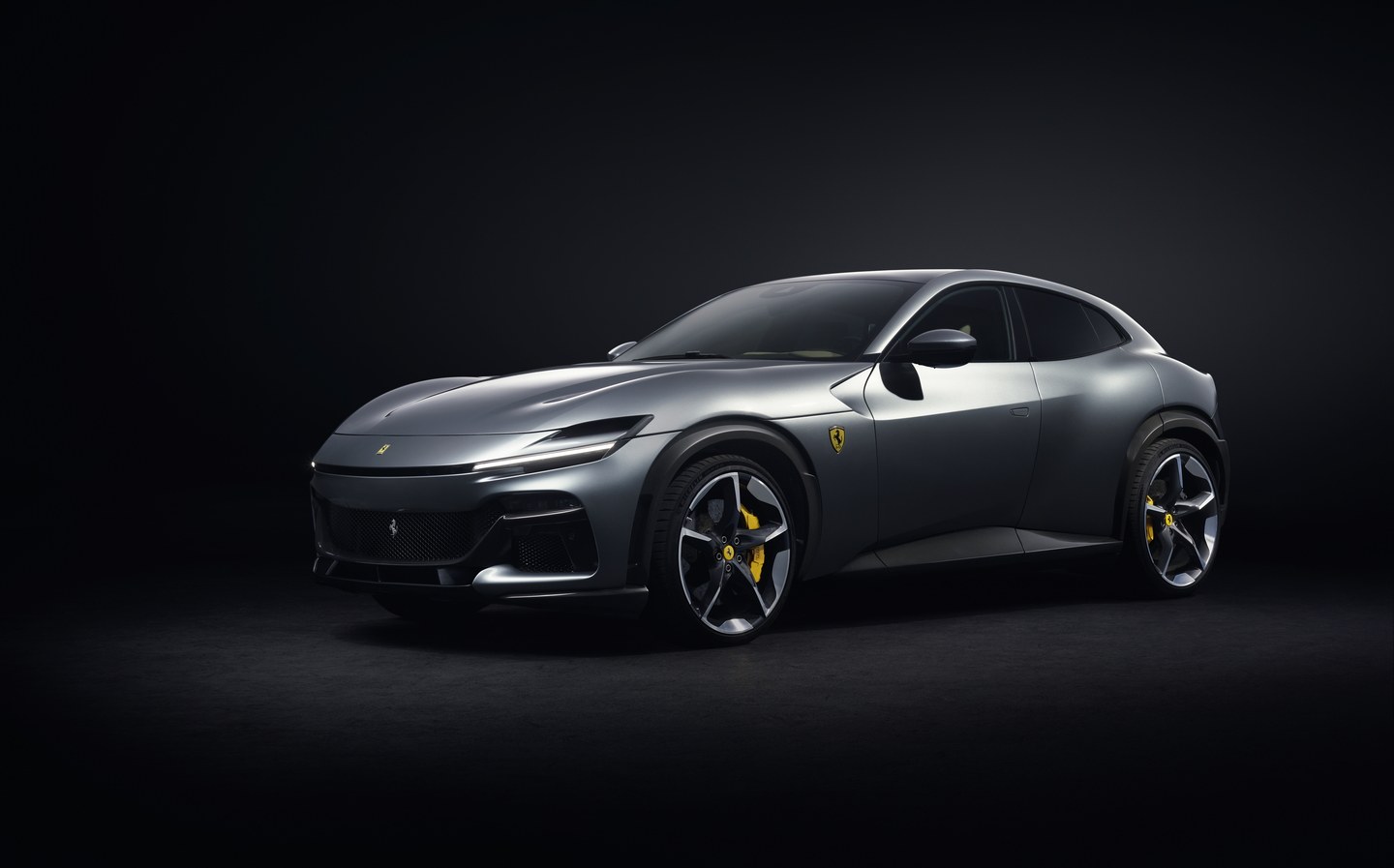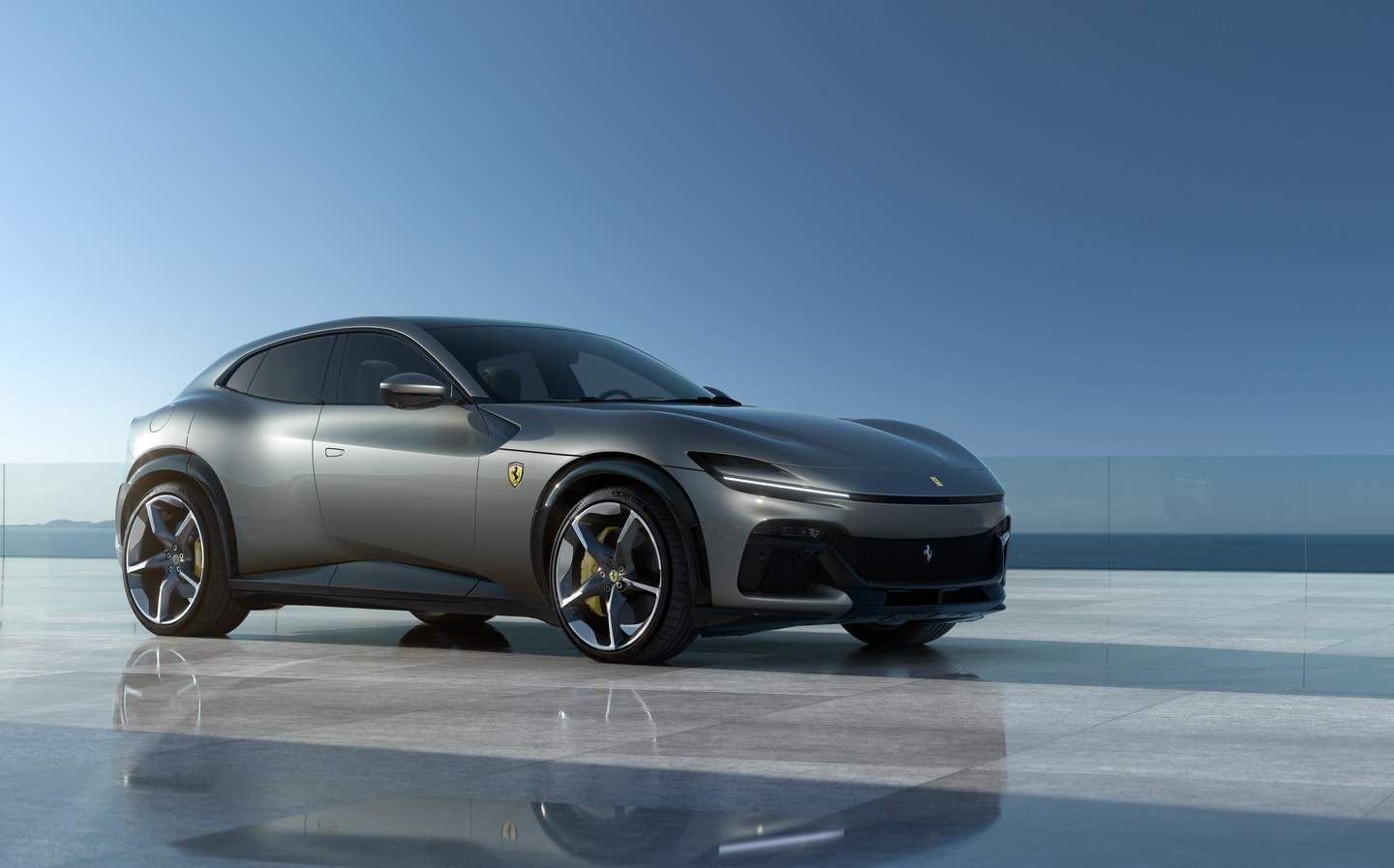Ferrari reveals versatile new 715bhp Purosangue — just don't call it an SUV
Set to give Lamborghini Urus a bloody nose
Ferrari has revealed its first ever five-door production car, called the Purosangue (“pure-o-sang-way”). Despite the manufacturer’s steadfast refusal to call the newcomer an SUV, and the fact its name means ‘Thoroughbred’ in Italian, the Purosangue is undoubtedly a high-riding rival to the Lamborghini Urus and Aston Martin DBX.
Bosses at Ferrari’s Maranello HQ are quick to dispel such talk, though, insisting this is the first car “in its class” to be built primarily as a sports car, rather than a utility vehicle. In fact, nowhere in Ferrari’s marketing material is there any mention of off-road capability. This, the brand insists, is simply a more practical take on a Ferrari sports car.
A more practical Ferrari
The brief was quite simple: Many Ferrari owners are more into collecting Ferraris than driving them every day, and Ferrari admits many use luxury SUVs such as Range Rovers as their family transport. So Ferrari set out to rectify that, offering customers a practical, all-season family car that’s as exciting and as sporty as a Ferrari coupé.
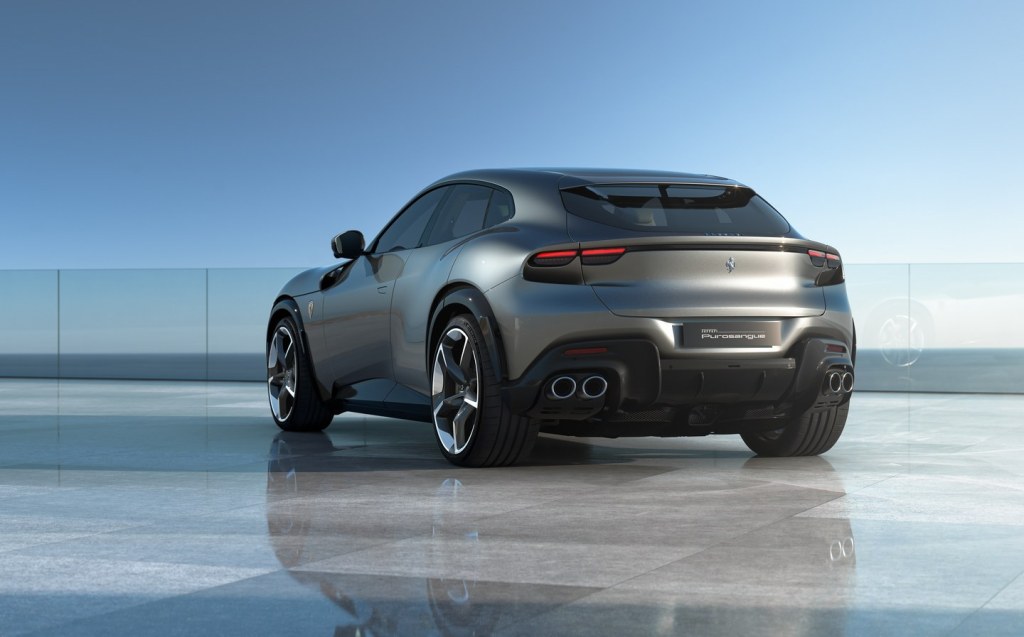
To that end, the Purosangue sits 185mm above the ground, riding on alloys that measure 22 inches at the front and 23 inches at the rear.
The bodyshell is designed to cut through the air as cleanly as possible, using vents and fins to smooth the airflow around the wheels and windscreen, while lightweight materials such as carbon fibre have been used to keep weight to a minimum. There’s even a carbon-fibre roof to keep the centre of gravity as low as possible.
Four-seat cabin and a big boot
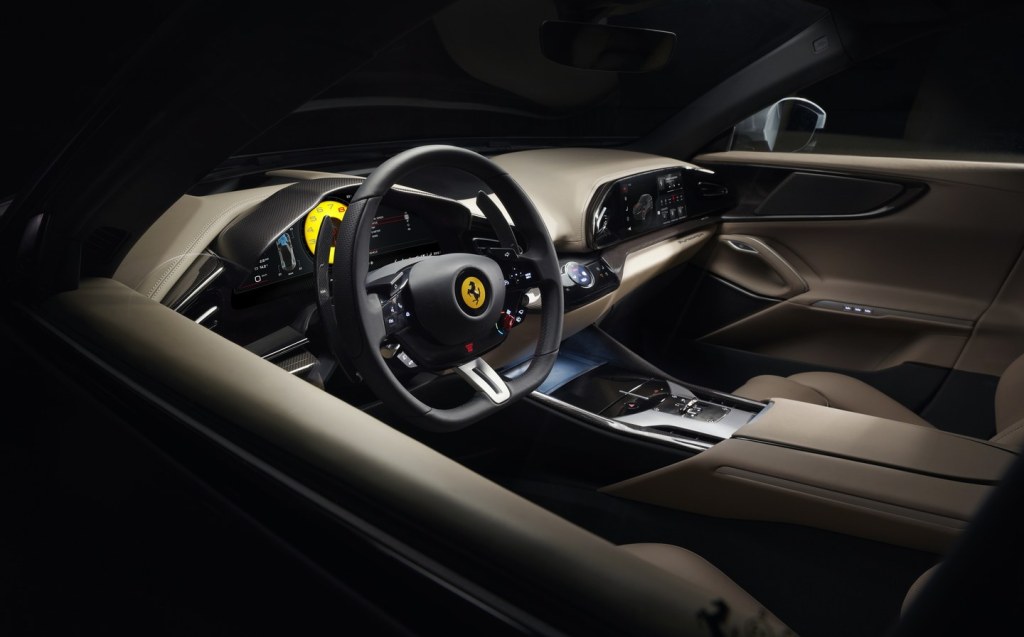
Nevertheless, the interior is designed to look and feel more “elegant” than most Ferrari cabins, with metal woven into the carbon fibre for a more upmarket appearance, for example. As usual, the dashboard is trimmed with soft leather, while the driver gets a digital instrument display that houses navigation and infotainment systems alongside the usual read-outs for speed and engine revs.
On the other side of the car, Ferrari has fitted a similar binnacle housing a touchscreen display solely for the passenger. Like the driver, the passenger has access to media and navigation systems, as well as vehicle data.
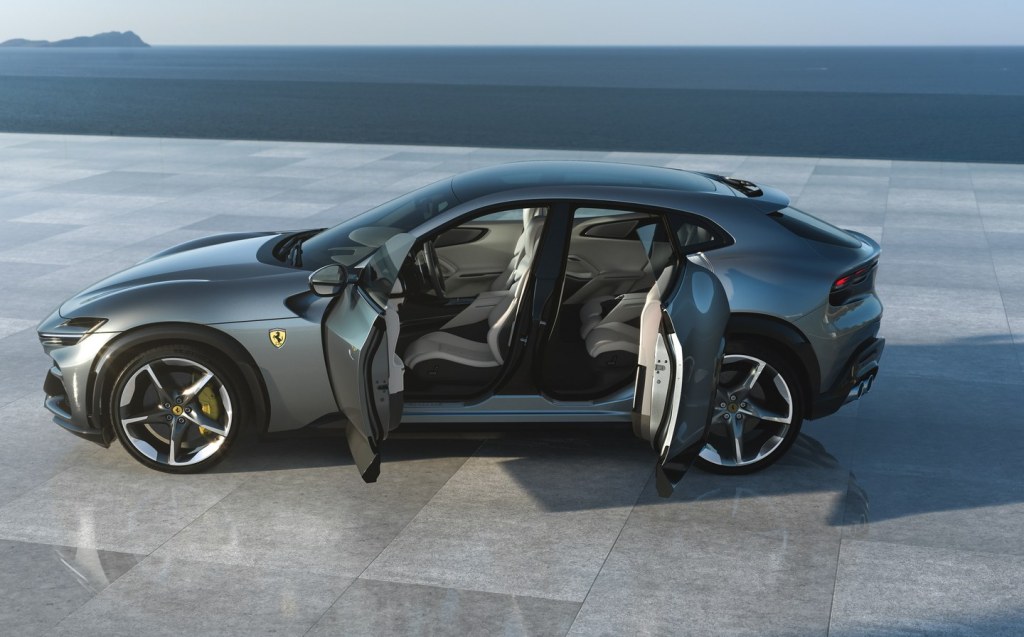
Perhaps most importantly, Ferrari has striven to make the Purosangue practical, fitting suicide rear doors, though with seating for only four passengers — there’s no attempt to squeeze in a centre rear seat.
There’s also a large hatch and a 473-litre boot, which gives the Purosangue roughly the same cargo space as a Range Rover Evoque.
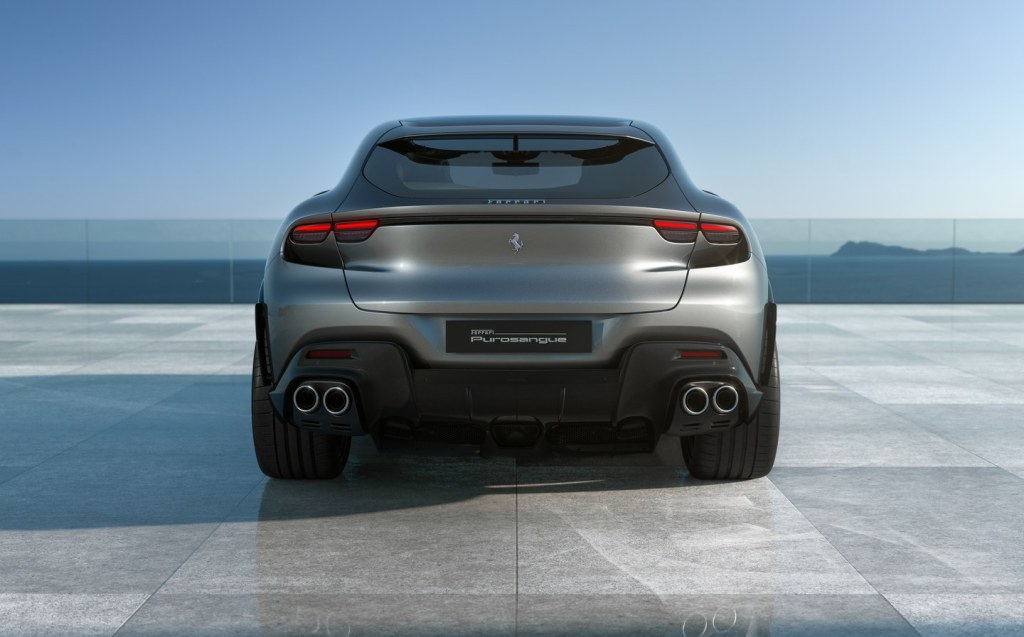
Naturally aspirated V12
To lend it some proper thoroughbred performance credentials, the Purosangue’s power – all 715bhp of it – comes from a 6.5-litre V12 engine that eschews turbochargers to offer a more linear and predictable power delivery, rather than more absolute power.
It’s based on Ferrari’s existing V12 engine, albeit with a number of modifications to make sure it produced enough low-down grunt for a taller, heavier and more practical car.
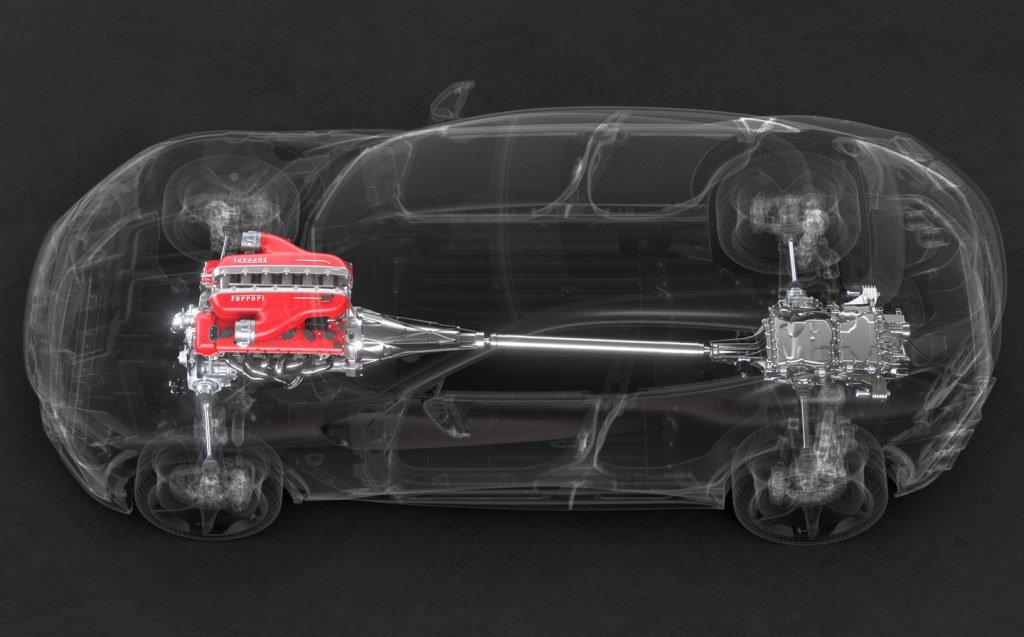
The complicated gearbox and all-wheel-drive system is lifted from the GTC4Lusso shooting brake, providing the traction of an all-wheel-drive car in lower gears and switching to sportier rear-wheel drive in higher ratios.
The result is a car that’s incredibly quick off the line, despite weighing more than two tonnes. The sprint from 0-62mph takes 3.3 seconds and keeping your foot to the floor will see 124mph flash up in 10.6 seconds. The Purosangue’s maximum speed is 190mph, which is fast enough for a not-SUV and just 3mph less than the on-steroids Aston Martin DBX707.
Special traction control
Instead of fitting air suspension, which Ferrari claims would be too slow to respond, the Purosangue has conventional steel springs with Ferrari Active Suspension Technology, dubbed FAST (a backronym if ever there was one), that uses electric motors to tweak the damping on the fly and is claimed to give the car improved body control and ride comfort.
At the same time, Ferrari has given the Purosangue clever anti-lock brakes to get the best possible stopping power and four-wheel steering for maximum manoeuvrability. It even has a special traction control system taken from the 296 GTB and tuned for optimum traction on snow or ice.
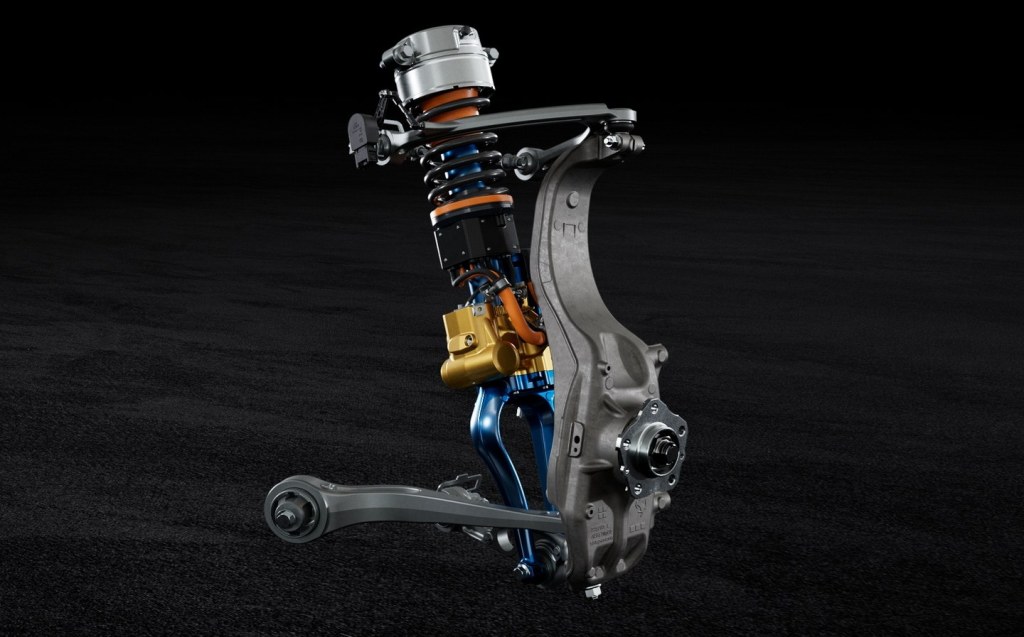
How much is the Ferrari Purosangue?
In Italy, all this technology takes the Purosangue’s base price to €390,000 including local taxes, and that’s the equivalent of around £350,000 in the UK. Once you’ve added a few choice options, expect to spend something in the region of £400,000 to get behind the wheel of a right-hand-drive Purosangue.
That makes the Ferrari incredibly expensive – more than twice the price of a similarly rapid Porsche Cayenne Turbo GT – but Ferrari is promising a healthy dollop of exclusivity.
Delivery dates and production numbers

Ferrari has pledged to limit Purosangue production to 20% of the brand’s total output, which stood at just over 11,000 last year. As a result, we’re looking at a total Purosangue production run of fewer than 3,000 cars a year.
And Ferrari admits demand is already so high that it may have to stop taking orders “soon”. For those who do get to place an order, the first right-hand-drive examples are due to arrive in the UK during the summer of 2023.
Related articles
- After reading about the new Ferrari Purosangue, check out our Ferrari 296 GTB 2022 review
- Take a look at our five best supercars to buy in 2022
- And don’t miss our F1 2022 guide, including race schedules, results and points standings
Latest articles
- Aston Martin Valkyrie AMR-LMH hypercar hits track ahead of 2025 Le Mans challenge
- Porsche has begun testing the electric Cayenne
- Cupra Leon 272 eHybrid 2024 review: Bigger battery, better tech … but is it a Cupra?
- Porsche 911 GTS 2024 review: Hybrid heresy or more Stuttgart genius?
- Extended test: 2023 Vauxhall Astra Sports Tourer GS PHEV
- Ford Capri revival has faced a lot of flak… but are buyers put off? Here’s what visitors to the Festival of Speed had to say
- F1 2024 calendar and race reports: What time the next grand prix starts and what happened in the previous rounds
- ‘No timeframe’ for how long Volvo’s returning estate cars will be on sale in UK
- Kia Picanto 2024 review: Updates add spice to cute Korean city car


